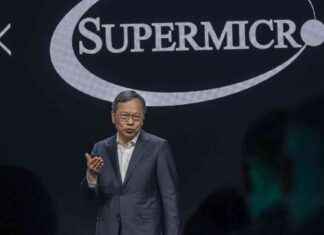Marathon Pharmaceuticals’ $89,000 price tag for a muscular dystrophy drug has drawn the ire of the pharmaceutical industry’s main lobbying group, which is reconsidering whether it wants companies like Marathon as members.
The group, the Pharmaceutical Research and Manufacturers of America, represents more than 50 drug companies, including the industry’s largest players. Marathon is a member and Jeffrey Aronin, CEO of Northbrook-based Marathon, is on the lobbying group’s board of directors.
But Wednesday, the pharma group’s President and CEO Stephen J. Ubl said in a statement that Marathon’s "recent actions are not consistent with the mission of our organization."
Marathon Pharmaceuticals is in the spotlight for drug pricing — again Lisa Schencker
Marathon Pharmaceuticals is only 6 years old, but this week’s uproar surrounding its $89,000 muscular dystrophy drug isn’t the first time the company — or its CEO — has faced outrage over drug pricing.
Monday, only four days after it received regulatory approval to market a drug to treat Duchenne…
Marathon Pharmaceuticals is only 6 years old, but this week’s uproar surrounding its $89,000 muscular dystrophy drug isn’t the first time the company — or its CEO — has faced outrage over drug pricing.
Monday, only four days after it received regulatory approval to market a drug to treat Duchenne…
(Lisa Schencker)
The group’s board of directors "has begun a comprehensive review of our membership criteria to ensure we are focused on representing research-based biopharmaceutical companies who take significant risks to bring new treatments and cures to patients," he wrote.
Marathon responded Thursday by releasing a one-sentence statement: "We are focused on providing this important drug to every young patient who needs it."
The dueling statements followed a week of controversy over the $89,000 price of Marathon’s deflazacort, which will be sold under the brand name Emflaza.
Marathon announced Monday it would pause the commercial launch of the drug in order to meet with "community leaders" to further discuss the pricing issue. That announcement came amid criticism from patient advocates and lawmakers, who wrote a letter to Aronin on Monday calling the $89,000 price "unconscionable."
The U.S. Food and Drug Administration just approved the drug a week ago, but it has long been available outside the U.S., and some Americans have been importing it for as little as about $1,200 a year.
Controversial ‘pharma bro’ Shkreli says ‘of course’ he’d raise drug price again Jared S. Hopkins
Outspoken former pharmaceutical executive Martin Shkreli said the national outrage over drug pricing was blown out of proportion and heightened by the U.S. presidential election, although he conceded he could have predicted the criticism better.
“In terms of regret, maybe not seeing that as acutely…
Outspoken former pharmaceutical executive Martin Shkreli said the national outrage over drug pricing was blown out of proportion and heightened by the U.S. presidential election, although he conceded he could have predicted the criticism better.
“In terms of regret, maybe not seeing that as acutely…
(Jared S. Hopkins)
The drug isn’t a cure for Duchenne muscular dystrophy, a muscle-wasting disease that affects mostly boys and typically leads to death in patients’ 20s or 30s. But it aims to improve muscle function, so patients can walk, feed themselves and control their wheelchairs longer.
Aronin defended the price Monday in a letter to the Duchenne community posted on Marathon’s website, saying the company expected the drug would be covered by insurers, and patients would pay only a $20 copay per prescription. He said he expected those who’ve been importing the drug would pay less for it through Marathon.
Aronin also said the company set the price at $89,000 based on resources it invested to bring the drug to market and complete clinical studies. He said the funds would also be used to pay for future research and ensure broad patient access through insurer reimbursement and its own assistance programs. Marathon did not develop the drug but had to get FDA approval for the drug before it could be widely available in the U.S. The company now will have exclusive rights to sell the drug in the U.S. for seven years.
The lobbying group’s condemnation of Marathon comes about a month after it launched a nationwide, multiyear advertising campaign to highlight biopharmaceutical companies’ innovations in treating diseases. In recent years, the industry has faced mounting criticism over drug prices, with a number of companies finding themselves in the hot seat over drug costs.
How free coupons for patients help drugmakers hike prices by 1,000% Melody Petersen
Horizon Pharma charges more than $2,000 for a month’s supply of a prescription pain reliever that is the combination of two cheap drugs available separately over the counter.
Another company, Novum, sells a small tube of a prescription skin rash cream, containing two inexpensive decades-old medicines,…
Horizon Pharma charges more than $2,000 for a month’s supply of a prescription pain reliever that is the combination of two cheap drugs available separately over the counter.
Another company, Novum, sells a small tube of a prescription skin rash cream, containing two inexpensive decades-old medicines,…
(Melody Petersen)
In 2015, pharma executive Martin Shkreli gained notoriety after he raised the price by 5,000 percent for a drug to treat a rare and sometimes deadly parasitic infection. Last year, pharma company Mylan drew outrage for the skyrocketing cost of EpiPens, used to treat allergic reactions.
Ubl described the nationwide campaign to reporters last month as an attempt to "replace the image of the industry that some have," The Washington Post reported. "In short, less hoodie and more lab coats," he said, in an apparent reference to Shkreli.
lschencker@chicagotribune.com
Twitter @lschencker
Our editors found this article on this site using Google and regenerated it for our readers.







